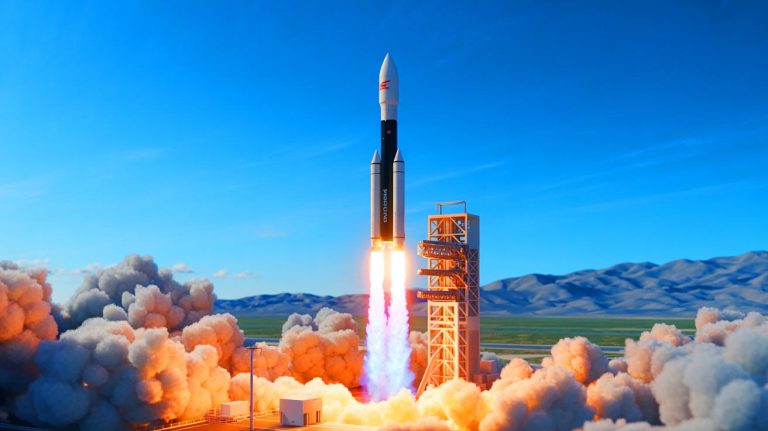| IN A NUTSHELL |
|
Honda, a company synonymous with ground-breaking automotive technology, has now set its sights toward the stars with a successful test of its experimental reusable rocket. On June 17, at its facility in Taiki Town, Japan, Honda launched a prototype vehicle to an impressive altitude of nearly 889 feet. This major achievement marks an important step in Honda’s strategic shift from terrestrial to space innovation, a move that is generating considerable excitement in both aerospace and automotive industries. As the race for reusable rocket technology heats up globally, Honda’s latest endeavor underscores its commitment to pioneering advancements beyond Earth’s atmosphere.
Honda’s Experimental Rocket Test
In a remarkable feat of engineering, Honda unveiled its experimental reusable rocket, designed and developed entirely in-house. The vehicle measures 20.6 feet in length and 33.4 inches in diameter, with a dry weight of 1,984 pounds. This compact yet powerful spacecraft signifies Honda’s bold foray into the realm of space exploration. On June 17, the prototype soared to an altitude of nearly 889 feet at Honda’s testing facility in Taiki Town, Japan. The launch demonstrated not just the rocket’s ability to reach significant heights, but also its precise landing capabilities, as it touched down merely 37 centimeters from its target.
This entire flight, lasting just 56.6 seconds, offered invaluable data crucial for future development. The successful test is a major milestone in Honda’s quest to achieve suborbital spaceflight by 2029, a goal that emphasizes the importance of reusability in making space travel more cost-effective and frequent. The test marks the beginning of Honda’s journey in mastering key technologies such as flight stability during ascent and descent, along with pinpoint landing precision.
The Reusable Rocket Race
Honda’s venture into space exploration is not an isolated initiative but part of a broader trend among automotive manufacturers to engage in the burgeoning space industry. In 2021, Honda first hinted at its reusable rocket ambitions, and since then, it has quietly progressed, even establishing a Space Development Division in the U.S. to facilitate collaboration and innovation. However, Honda is not alone in this race. The Japanese government is actively promoting its space industry, aiming to expand it to over $55 billion by the early 2030s with substantial subsidies to private firms.
Major automotive competitors like Toyota have also entered the fray, with ambitions to advance the mass production of launch vehicles. Globally, the landscape of reusable launch vehicles has been transformed by SpaceX’s Falcon 9, leading to a wave of similar developments in the U.S., China, and Europe. For instance, Blue Origin in the U.S. and various companies in China and Europe are advancing their reusable rocket designs. This movement illustrates a significant shift in how commercial space missions are conducted.
Global Momentum in Space Innovation
The global interest in reusable rockets is further evidenced by recent developments in Japan and beyond. Earlier reports indicated that a Japanese company is working on a “winged reusable rocket,” adding to the growing momentum. Tokyo-based startup Innovative Space Carrier is also in the spotlight, planning to test a prototype reusable rocket in the United States later this year, leveraging an American engine. These efforts reflect a global trend toward sustainable and cost-efficient space exploration.
Honda’s Global CEO Toshihiro Mibe has expressed confidence in the company’s space endeavors, emphasizing that the rocket research leverages Honda’s existing technological strengths. The recent successful launch and landing test represent another step forward for Honda in the realm of reusable rockets, showcasing its commitment to innovation and excellence in space technology.
Honda’s Vision for the Future
As Honda continues to make strides in the realm of reusable rockets, it sets a clear vision for the future of space exploration. Although the research is still in its fundamental phase, Honda remains dedicated to advancing its technology with the aim of achieving a suborbital launch by 2029. This ambitious goal underscores the importance of reusability in future space missions, promising a future where space travel is not just a rare feat but a routine endeavor.
Honda’s efforts reflect a broader industry trend where traditional automotive companies are breaking new ground in aerospace. As the company forges ahead with its space ambitions, it raises an intriguing question for the future: How will the evolution of reusable rocket technology continue to reshape our understanding of space travel and its possibilities?
Did you like it? 4.3/5 (24)







Wow, Honda is really reaching for the stars! 🚀